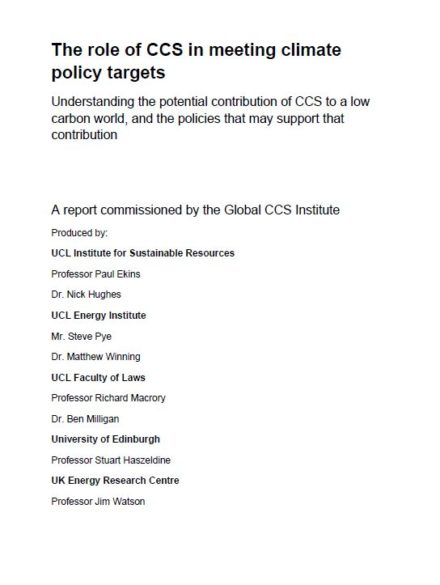Publications
The role of CCS in meeting climate policy targets
23rd October 2017
Topic(s): Carbon capture use and storage (CCUS)
Carbon capture and storage (CCS) refers to a set of technologies that may offer the potential for large-scale removal of CO2 emissions from a range of processes – potentially including the generation of electricity and heat, industrial processes, and the production of hydrogen and synthetic fuels. CCS has both proponents and opponents. Like other emerging low carbon technologies, CCS is not without risks or uncertainties, and there are various challenges that would need to be overcome if it were to be widely deployed. Policy makers’ decisions as to whether to pursue CCS should be based on a judgement as to whether the risks and uncertainties associated with attempting to deploy CCS outweigh the risks of not having it available as part of a portfolio of mitigation options, in future years.
Disclaimer
The content within the Global CCS Institute Publications, Reports and Research Library is provided for information purposes only. We make every effort and take reasonable care to keep the content of this section up-to-date and error-free. However, we make no claim as to its accuracy, currency or reliability.
Content and material featured within this section of our website includes reports and research published by third parties. The content and material may include opinions and recommendations of third parties that do not reflect those held by the Global CCS Institute.
